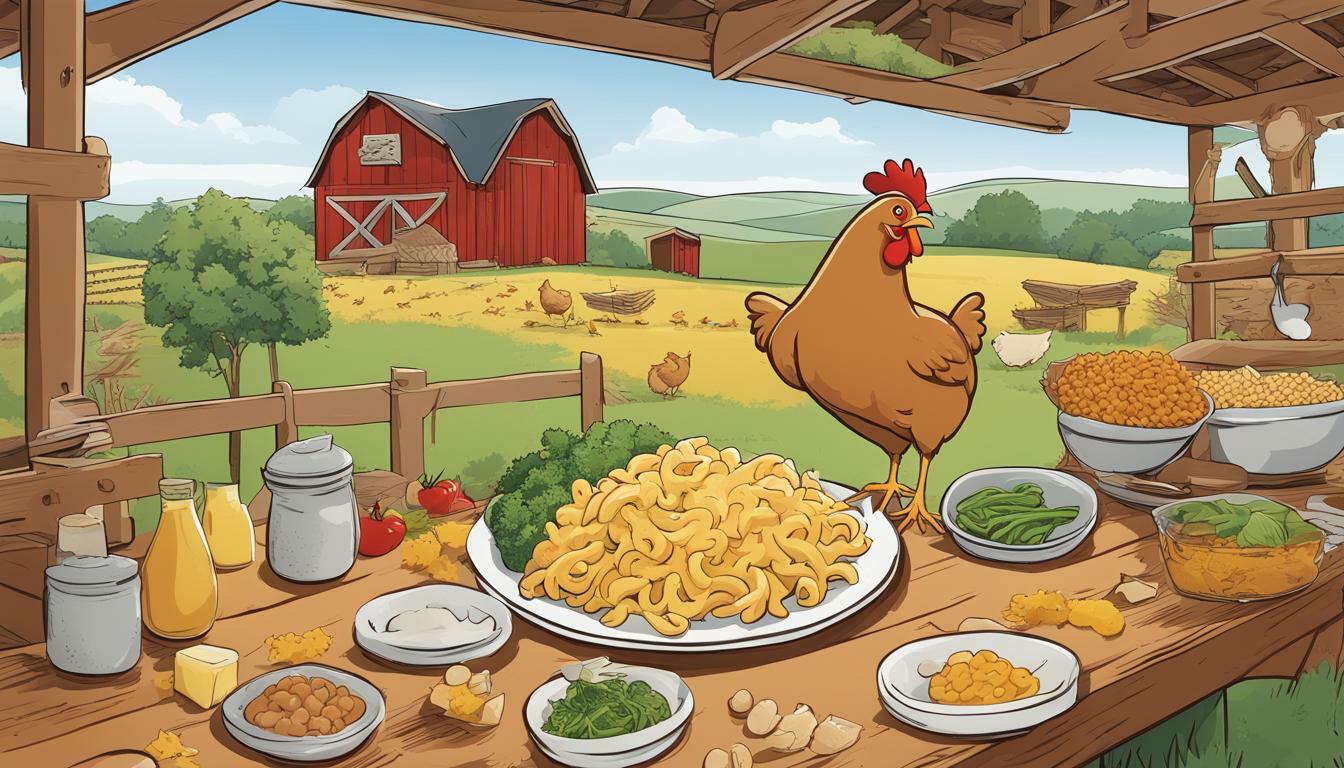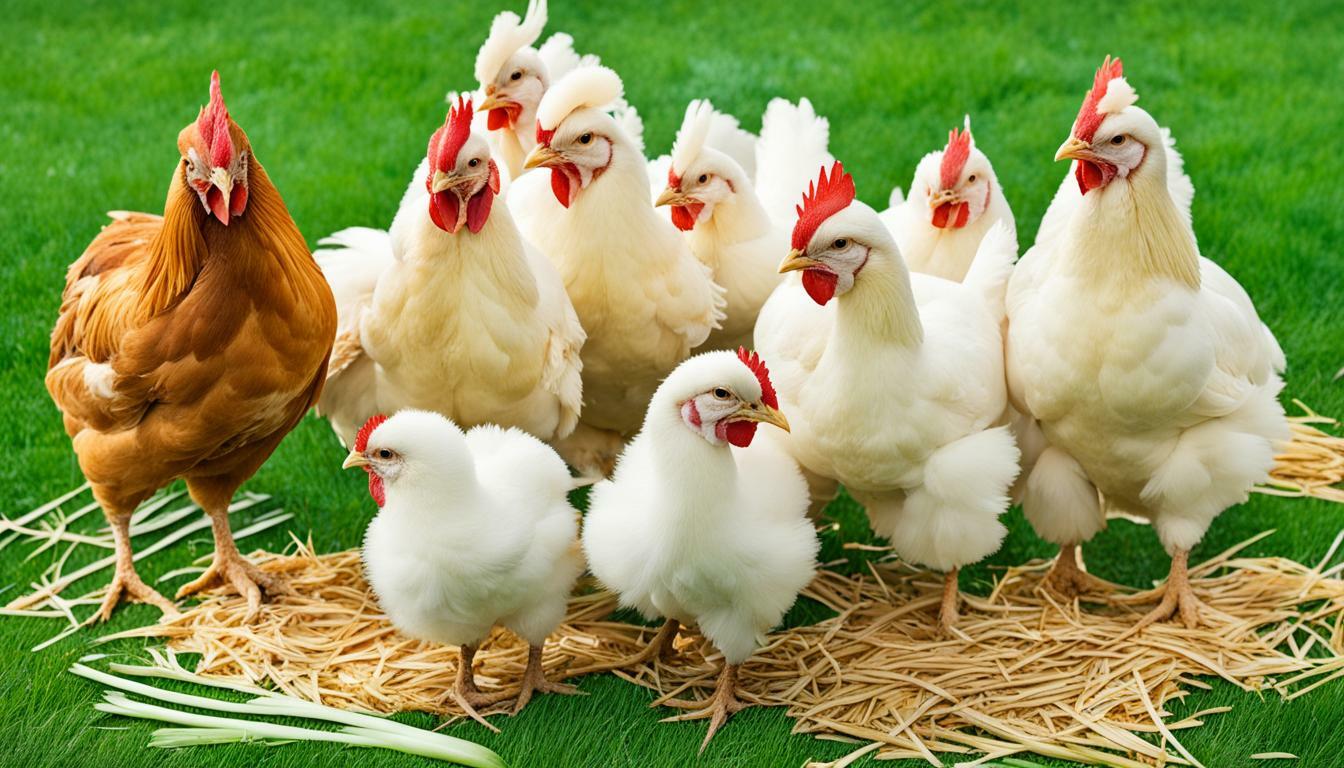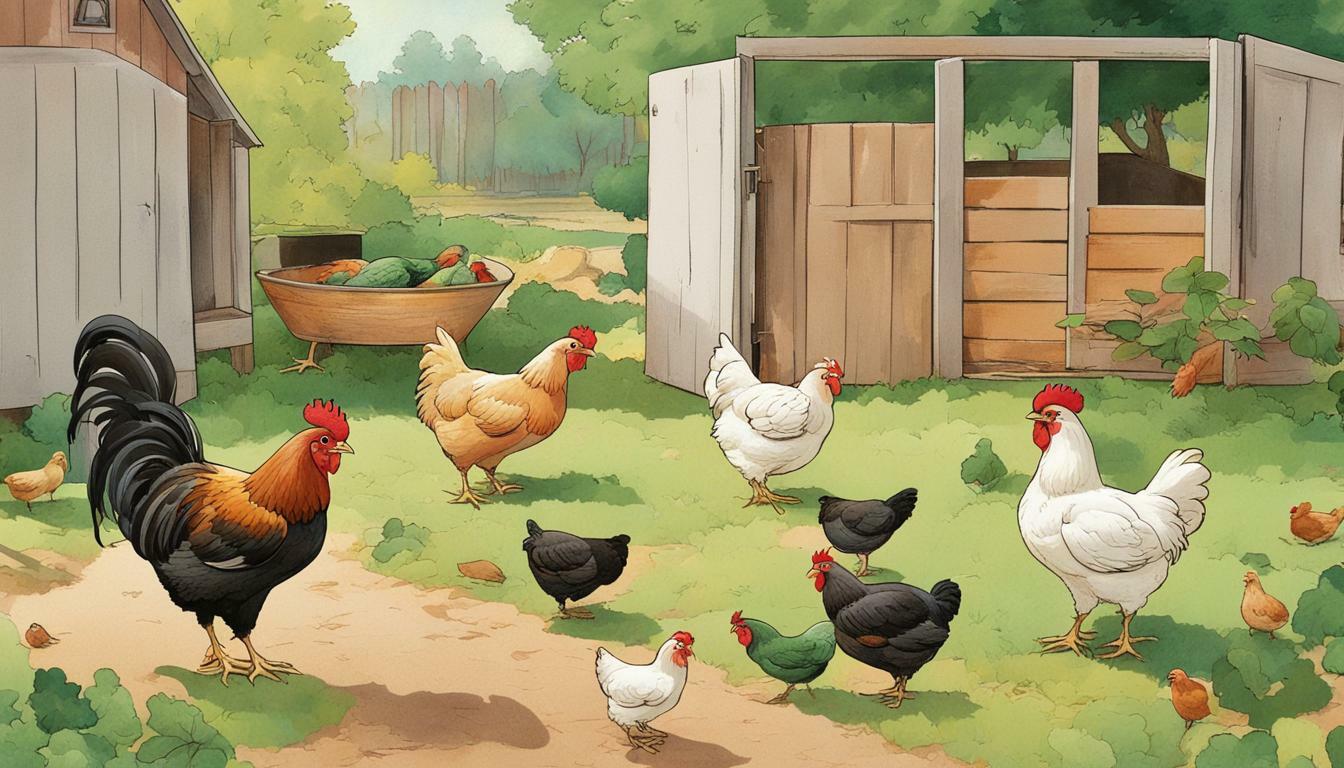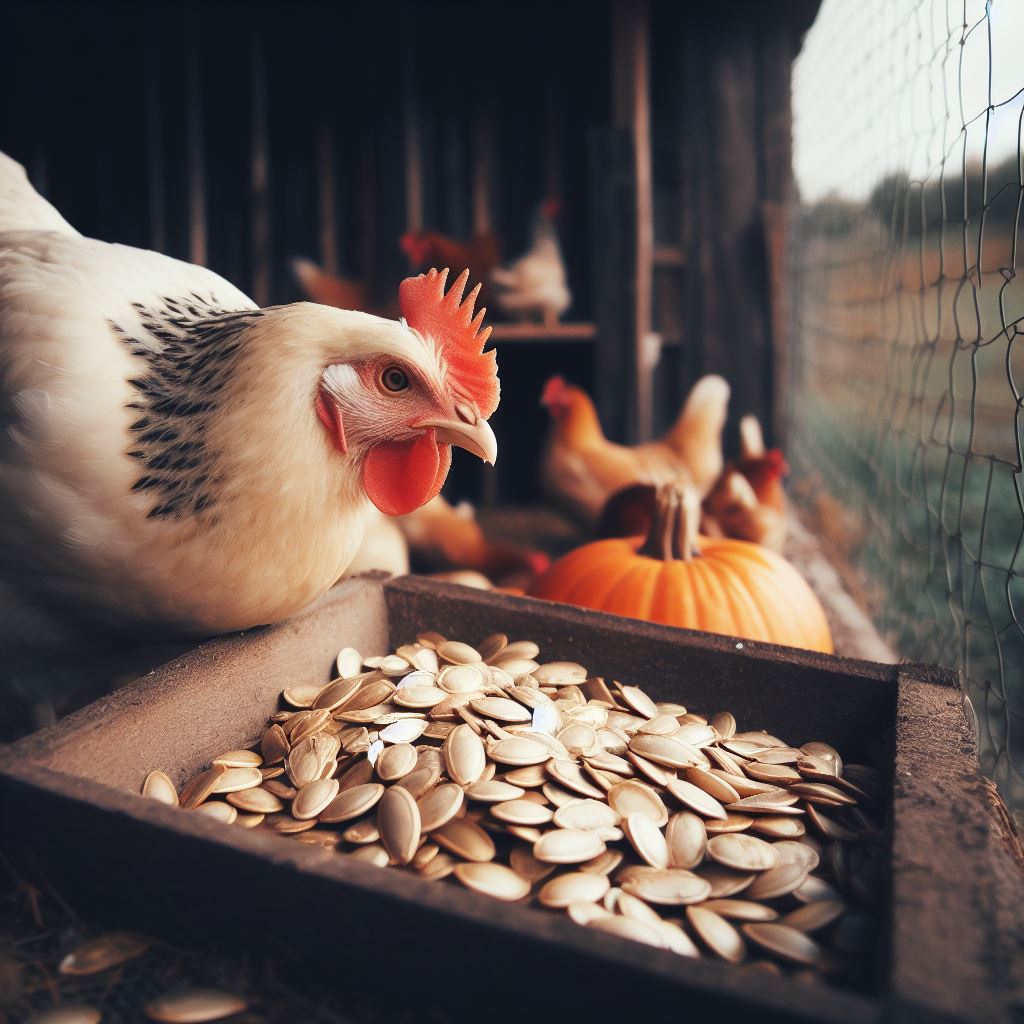Can Chickens Eat Mac And Cheese? Uncovering Poultry Diets

Table of content:
Mac and cheese is a popular, creamy pasta dish made with macaroni noodles and cheese sauce. It’s loved by many people for its comforting, cheesy flavors. But is mac and cheese something you should be feeding your backyard chickens? Let’s take a closer look at whether chickens can eat macaroni and cheese safely.
The Nutritional Value of Mac and Cheese for Chickens
Mac and cheese is made up of simple ingredients like pasta, cheese, milk, and butter. Here’s a quick rundown of how each of these ingredients may impact chicken health:
Pasta
- Pasta like macaroni is made from semolina flour, water, and sometimes egg.
- Cooked pasta can be a good source of carbohydrates for chickens. Carbs provide energy.
- Whole grain or spinach pasta may offer more vitamins and minerals than plain white pasta.
Cheese
- Cheddar, cream cheese, and other full-fat dairy products provide protein and fat.
- Cheese may be high in calcium and vitamin A, nutrients chickens need.
- Full-fat cheese is rich and may cause digestive upset if fed too much.
Milk and Butter
- Dairy ingredients add fat, protein, calcium, and vitamin D.
- Too much fat from full-fat dairy can lead to obesity and liver issues over time.
So in moderation, pasta, cheese, milk, and butter can contribute useful nutrients to a chicken’s diet. But mac and cheese is very heavy, dense, and rich. Portion control is key.
Are There Any Risks to Feeding Chickens Mac and Cheese?
Mac and cheese, especially homemade versions, are high in fat, sodium, and calories compared to a chicken’s normal diet. Here are some potential downsides of offering too much mac and cheese:
- Obesity – The fat and calorie content could lead to weight gain if fed regularly. Chickens should have lean physiques.
- GI issues – Greasy, dairy-heavy foods can cause digestive upset, diarrhea, or other GI problems in some birds.
- Sodium – Cheese and butter contain a lot of sodium, which chickens are sensitive to. Too much sodium is toxic.
- Lack of nutrients – Mac and cheese alone lack the vitamins, minerals, and amino acids chickens need in their regular feed.
- Processed ingredients – Some boxed mac and cheese have artificial colors, flavors, or preservatives that aren’t good for birds.
So mac and cheese should only be an occasional treat. It doesn’t provide complete or balanced nutrition for chickens on its own.
Healthy Ways to Feed Chickens Mac and Cheese
If you want to share a little bit of your mac and cheese with the backyard flock, here are some tips for feeding it safely:
- Leftovers only – Serve leftovers only so it doesn’t replace their normal feed. Don’t make extra just for the chickens.
- Small portions – Chickens have small stomachs. Feed mac and cheese as a treat in very limited quantities.
- Part of a balanced diet – Ensure their usual feed and fresh treats like veggies or fruit are still offered.
- Avoid feeding daily – Feed mac and cheese only occasionally, not every day, to prevent obesity.
- Watch for reactions – If any bird seems lethargic or unwell after eating mac and cheese, avoid feeding it in the future.
Healthy Add-Ins
To make mac and cheese a bit healthier for chickens, you can add in some extras:
- Cooked chopped veggies like peas, carrots, or broccoli
- Cooked lean shredded chicken or turkey
- Rice or whole grain pasta instead of plain white varieties
- Low-sodium cheese
- Calcium-fortified nondairy milk
Adding in fresh produce boosts the vitamin and mineral content. Lean protein gives a protein boost. And using healthier versions of dairy and pasta improves the nutritional value.
Chickens That Should Not Eat Mac and Cheese
While most chickens can indulge in the occasional small serving of mac and cheese, there are some birds that are better off avoiding it:
- Overweight chickens – Those prone to obesity are better off skipping high fat foods like mac and cheese, cheese, butter, etc.
- Senior chickens – Older birds may have difficulty digesting greasy foods. Seniors need easily digestible, nutrient-dense feeds.
- Chickens with GI issues – Birds prone to diarrhea or other gut problems won’t tolerate cheesy pasta well.
- Chicks – Baby chicks should not eat mac and cheese. They need chick starter feed for proper nutrition.
- Laying hens – Birds laying eggs need calcium-rich feeds. Mac and cheese is not a good source of the extra calcium hens need.
If you have any chickens with pre-existing health conditions, ask a vet before sharing people food scraps like mac and cheese.
Healthy Treats and Foods for Chickens
Instead of mac and cheese, opt for healthier, more nutritious treats for your flock. Here are some great options:
Fruits and Veggies
Chickens naturally forage and peck at greens, fruits, seeds, and bugs. Almost any product can be shared safely. Try:
- Leafy greens like kale, spinach, lettuce
- Vegetables like broccoli, carrots, squash
- Fruits like strawberries, blueberries, watermelon
Chop produce into bite-sized pieces before feeding. Fruit or veggie scraps work well.
Grains
Whole grains provide fiber and carbs for energy. Options include:
- Cooked rice, barley, or oatmeal
- Dry whole grain cereal or granola
- Whole wheat pasta or bread
Sprouted grains are great too. Limit starchy white bread or pasta.
Proteins
- Cooked egg scrambled or hard-boiled
- Plain cooked chicken or turkey, skin and fat removed
- Mealworms or crickets for protein and natural foraging
- Low-fat plain yogurt or cottage cheese
Lean proteins support muscle growth and egg production. Avoid greasy proteins.
Oyster Shells or Grit
To help chickens properly digest food, offer:
- Crushed oyster shell for calcium
- Insoluble granite grit
These provide calcium for eggshells and “teeth” to grind food in the gizzard.
Should You Feed Chickens Mac and Cheese Frequently?
In general, mac and cheese should only be an occasional treat for chickens. It doesn’t provide complete nutrition and the fat, sodium, and preservatives aren’t ideal components of a chicken diet.
While pasta, cheese, milk, and butter can be part of a balanced diet, mac and cheese is a heavy, dense dish. Eating it frequently could lead to obesity or digestive issues.
It’s best to stick with regular poultry feed, healthy treats like fruits and veggies, and the occasional small portion of “people’s food” like mac and cheese. Follow portion guidelines, watch for adverse reactions, and keep their overall diet varied.
Mac and cheese now and then won’t harm most chickens when served responsibly. But it shouldn’t become a dietary staple. With a little common sense, you can safely share small samplings of this classic comfort food.
Final Thoughts
Mac and cheese make an indulgent treat that many backyard chicken owners want to share with their flock. In moderation, plain macaroni and cheese can be fed to chickens as part of a balanced diet. Be mindful of portion size, limit high-fat ingredients like butter and full-fat cheese, and avoid processed versions with artificial additives.
Watch your chickens’ weight and droppings to ensure mac and cheese isn’t causing digestive upset. Keep it as an occasional snack rather than a daily treat. Focus on healthier options like fresh fruits, veggies, greens, and lean proteins as regular treats. With some precautions, chickens can enjoy a bite of this cheesy, creamy pasta. Just don’t overdo it!
Welcome. I’m Adreena Shanum, the proud owner of this website, and I am incredibly passionate about animals, especially poultry. I founded adreenapets.com as a labor of love, stemming from my desire to share my knowledge and experiences with poultry enthusiasts worldwide.




